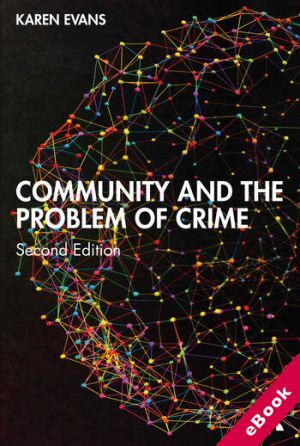
The device(s) you use to access the eBook content must be authorized with an Adobe ID before you download the product otherwise it will fail to register correctly.
For further information see https://www.wildy.com/ebook-formats
Once the order is confirmed an automated e-mail will be sent to you to allow you to download the eBook.
All eBooks are supplied firm sale and cannot be returned. If you believe there is a fault with your eBook then contact us on ebooks@wildy.com and we will help in resolving the issue. This does not affect your statutory rights.
This book offers a useful theoretical overview of key approaches to the subject of crime and community and considers the ways in which these have been applied in more practical settings. Written by an expert in the field and drawing on a range of international case studies from Europe, North America, Australia and Asia, this book explores both why and how crime and community have been linked and the implications of their relationship within criminology and crime prevention policy. Topics covered in the book include:
The new edition has been fully revised and updated to include discussion of the rise of populist politics and the centrality of ‘crime’ and ‘disorder’ as a divisive element used in populist political rhetoric; the politics of austerity and the management of crises – economic, environmental and of COVID-19 and the subsequent lockdowns; the impact of Black Lives Matter, MeToo and Extinction Rebellion; the significance of social media and virtual community; the further erosion of civil liberties and the right to protest; and racialised US policing practices and police-related deaths. This book offers essential reading for students taking courses on crime and community, crime prevention and community safety and community corrections.